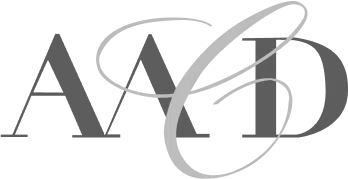1. Cavity: Cavities are holes in the tooth caused by the acids produced by oral bacteria. Cavities can progress at different rates depending on oral hygiene and dietary factors like sugar consumption. Once cavities extend deep enough into the tooth structure, they may start to approach the nerve housed in the center of the tooth. At this point, cavities may cause sharp pain to a stimulus like chewing, hot or cold, or sweets. These symptoms may be severe enough to prevent you from eating on the side of the affected tooth.
2. Dental nerve infection: Once cavities have progressed into the nerve of the tooth, the nerve tissue becomes infected. This causes a dull constant ache that may happen on its own or linger after introduction of a stimulus like hot/cold. Oftentimes the toothache requires mediation to subside, and it may even wake you up in the middle of the night.
3. Gum infection: Occasionally the gum tissue can become infected. This may occur because of food becoming lodged in the tissue or as a result of chronic periodontal disease. Gum tissue discomfort can sometimes be hard to distinguish from tooth pain and is often stimulated by flossing and brushing. Sometimes gum infection can cause a dull ache and bad taste in the mouth.
4. Jaw pain: The lower jaw opens and closes on a hinge at the connection to the skull, a joint known as the temporomandibular joint (TMJ). When there is a problem with this joint or the associated nerves and muscles, it is known as temporomandibular disorder (TMD). TMD is a common condition often characterized by discomfort with the jaw, headaches, neck pain, tooth discomfort, or ear ringing/pain. This disorder occurs when the muscles of the jaw joint become overworked due to clenching or grinding, or when there have been pathologic changes in the jaw joint which affect its function.
5. Sinus infection: When a patient experiences a sinus infection, it can sometimes present as tooth discomfort. The lower extent of the maxillary sinus dips down along the roots of the upper teeth. When the lining of this sinus is inflamed due to infection, it can cause generalized discomfort in the upper teeth on the affected side. Patients with sinus infection will often report discomfort that may vary depending on position (ie. Laying back) or activity (ie. exercise).
6. Recession: Recession is when the gum tissues move down along the tooth to expose some of the root of the tooth. The root surface of our teeth has open tubules or pathways to the nerve inside the tooth, as it lacks the thermal protective layer of enamel. When new areas of the root become exposed by gum recession, these teeth become very sensitive particularly to air, cold and brushing.
7. Cracked or fractured tooth: Cracked and fractured teeth are very hard to diagnose as the symptoms may be sporadic or vague until the crack has progressed closer to the nerve of the tooth. Cracked teeth are typically diagnosed by pain to chewing which becomes more consistent over time. Sometimes these teeth may also be sensitive to cold.









